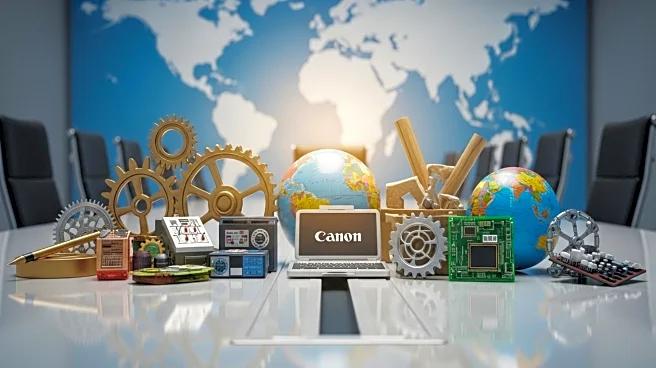What is the story about?
What's Happening?
President Donald Trump is broadening the scope of national security tariffs to include a wider array of products, such as kitchen cabinets and roller skates. This move is part of an effort to bolster the U.S. industrial base, which Trump argues is essential for a strong military. The administration has imposed new tariffs on imported timber, lumber, and wood products, citing national security concerns. Additionally, investigations by the Commerce Department are likely to lead to further tariffs on foreign-made medical devices and industrial robotics. This strategy builds on previous tariffs imposed during Trump's first term, aiming to reduce dependency on foreign imports and encourage domestic production.
Why It's Important?
The expansion of national security tariffs underlines a significant shift in U.S. trade policy, emphasizing protectionism and domestic industry support. By targeting a broader range of goods, the administration seeks to revitalize American manufacturing and reduce reliance on foreign suppliers. This approach could lead to increased costs for imported goods, affecting both consumers and businesses reliant on foreign materials. However, it also presents opportunities for domestic industries to grow and innovate. The move has sparked debate over the definition of national security and its application to everyday products, raising questions about the balance between economic protection and free trade principles.
What's Next?
The administration's strategy may face legal challenges, particularly as the Supreme Court is set to review the legality of country-specific tariffs. If upheld, the decision could pave the way for further expansion of product-specific tariffs. Meanwhile, the Commerce Department continues to investigate additional sectors for potential tariff imposition, including electric vehicle batteries and agricultural products. The outcome of these investigations and the Supreme Court ruling will significantly influence the future of U.S. trade policy and its impact on global economic relations.
















